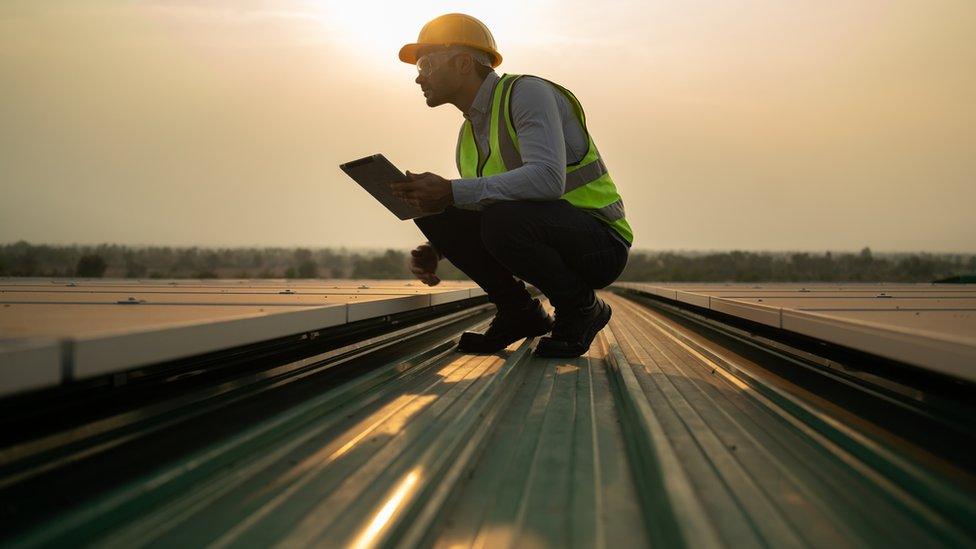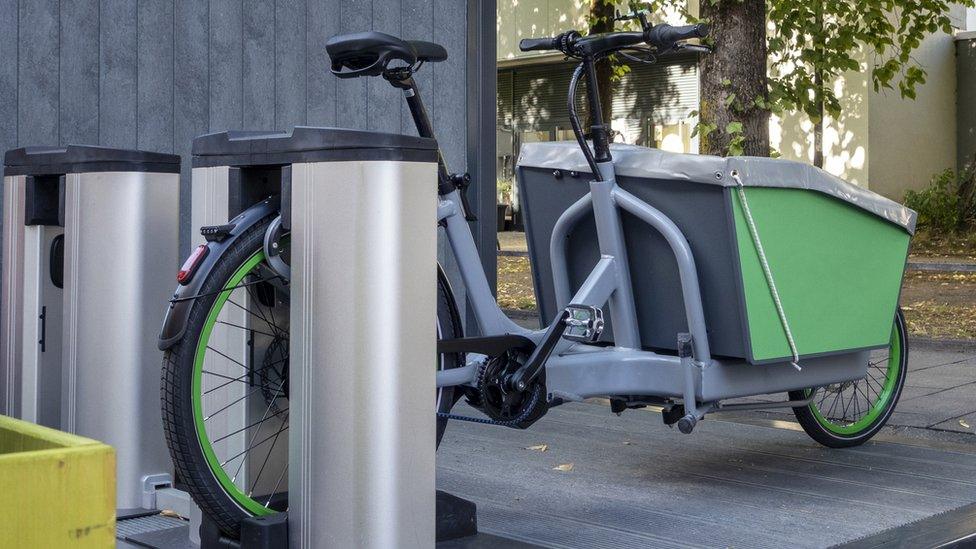Highland Council looks at generating its own power
- Published

Highland Council is exploring the potential of generating and storing its own power.
The local authority believes solar and battery storage could bring widespread benefits to communities, and help it achieve climate change targets.
Benefits also include the creation of work for local suppliers.
But in a report to councillors meeting next week, officials said developing and managing renewables projects would require major investment.
A council workshop held last month discussed the possibility of the local authority developing its own renewable projects, including wind, geothermal and tidal.
The report to next Wednesday's redesign board meeting, external has recommended councillors agree to further work on solar and the use of large lithium-ion batteries to store energy from renewable schemes for when it was needed.
Cargo bikes
Highland Council already has a number of other renewable and low-carbon projects.
They include Hydro Ness, which generates electricity from the River Ness at Inverness using an Archimedes Screw.
It also has plans for an air source heat pump system to warm Inverness Castle and neighbouring properties.
The local authority had originally hoped to do this by capturing heat from waste water flowing through a nearby sewer.
But was found that the closest sewer does not to have sufficient flow rates to make the system work.
Highland Council is also piloting the use of electric cargo bikes in some of its staff's work.
Related topics
- Published12 March 2023

- Published31 January 2023
- Published28 July 2022